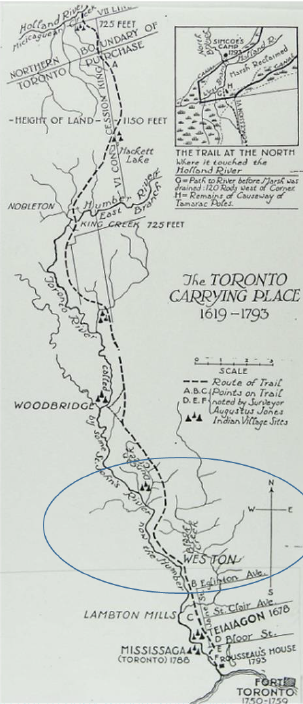Humber River Health (Humber) celebrates and recognizes Indigenous History Month every year for the month of June, and maintains its ongoing commitment to equity, diversity, and inclusion (EDI). One of Humber's Strategic Pillars is to embed these principles in everything the organization does, actively pursuing partnerships and integration opportunities to support staff and provide equitable and inclusive care for the community.
A key aspect of this commitment is the recent refinement of their Land Acknowledgement. Recognizing the importance of accuracy and authenticity, Humber ensures ongoing consultations and discussions with their Indigenous communities. The EDI leadership team at Humber engaged in an extensive review process, initiating dialogues with the Six Nations, Wendat, and Mississaugas of the Credit First Nation to gather their valuable insights. These efforts to improve the Land Acknowledgement ensured it reliably reflects the histories and contributions of the communities on whose traditional territories Humber River Health operates.
Revision Process
Humber meaningfully engaged with the communities that have inhabited these lands since time immemorial, and through a thoughtful consultation process, an all-encompassing version was created that promotes the utmost correctness. Chipping away to a refined final form took some effort from all involved, but presented a comprehensive version that reflected Humber's community best. The process was a collaborative effort that not only enhanced the statement, but also provided a learning opportunity for the wider community and allies about the history of the Humber River and who occupied the lands at different points in time.
Below is an example of a crucial revision:
 Original statement: “In the spirit of Truth and Reconciliation and as a settler on this land, I acknowledge that Humber River Hospital is situated on the territories and the traditional lands of the Wendat, the Haudenosaunee…"
Original statement: “In the spirit of Truth and Reconciliation and as a settler on this land, I acknowledge that Humber River Hospital is situated on the territories and the traditional lands of the Wendat, the Haudenosaunee…"
Feedback: There is no need to use the word territories in the part of the Land Acknowledgement as the word “territory" refers to nations that currently occupy the lands; traditional territory refers to those nations who once occupied, controlled, and exercised stewardship of the lands, but then left those lands for other locations. You correctly identified the traditional landholders as Wendat and the Haudenosaunee.
Revised statement: "I (we) wish to acknowledge this land on which Humber River Health operates is the Treaty 13 lands and territory of the Mississaugas of the Credit First Nation and the traditional territory of the Wendat and the Haudenosaunee."
After several rounds of consultations and revisions, Humber shared their new Land Acknowledgement:
"I (we) wish to acknowledge this land on which Humber River Health operates is the Treaty 13 lands and territory of the Mississaugas of the Credit First Nation and the traditional territory of the Wendat and the Haudenosaunee. Today, this meeting place is still the home to many Indigenous people from across Turtle Island, and we are grateful to have the opportunity to work on this land.
In the spirit of Truth and Reconciliation, we at Humber River Health strive to improve the health and wellness of all peoples on the lands we serve. We pledge to provide exceptional care, and deliver healthier communities through our values of compassion, professionalism and respect."
The iterative process of developing and refining a Land Acknowledgement is crucial. It encourages dialogue and deeper understanding between Indigenous communities and organizations like Humber. We encourage all organizations to develop their own Land Acknowledgement or to continuously update existing ones and seek guidance from the appropriate Indigenous community members. Land Acknowledgments are to be fluid and should be reviewed regularly. It is also advantageous to support staff by providing guides on when and how to use these materials, as Humber does. These practices honour our Indigenous communities and fosters a culture of respect and reconciliation.
Indigenous History Month Initiatives
Recognizing special days and events is a key facet of honouring commitments to inclusivity. During Indigenous History Month, Humber is engaging in several important initiatives aimed at promoting understanding and collaboration.
This includes collaborating with the Native Canadian Centre of Toronto to offer an Indigenous Cultural Awareness Workshop. This workshop will cover important cultural teachings and practices, including the Seven Grandfather Teachings and the Four Traditional Medicines—tobacco, cedar, sage, and sweetgrass. Participants will also explore the impact of colonialism, historical events, terminology, reconciliation, and allyship. In addition, Humber will host a Smudging Ceremony, which is a ceremony that provides the opportunity for spiritual cleansing and renewal. It incorporates the four elements: a shell representing water, the sacred plants representing earth, the fire that lights the plants, and the smoke representing air.
By engaging in these activities, Humber not only celebrates Indigenous History Month but also reinforces its commitment to providing a welcoming, respectful, and inclusive environment for all. These initiatives underscore Humber River Health's dedication to fostering an atmosphere where every member of the community feels seen, heard, and cared for. By acknowledging our past and embracing a diverse future, organizations have the opportunity to pave the way for a more inclusive and equitable healthcare system.